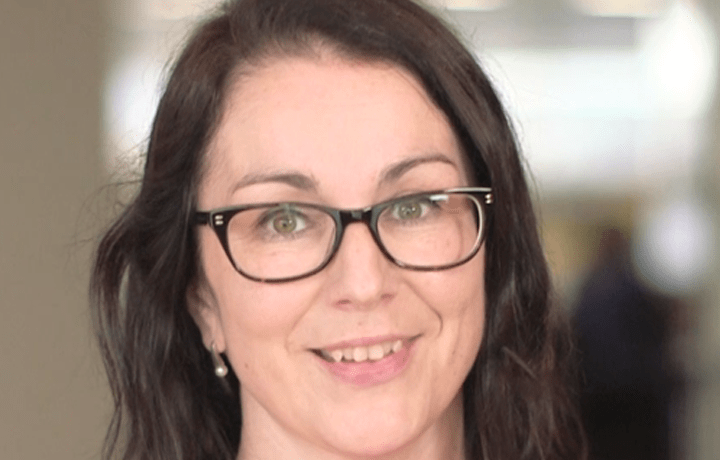How just 30 minutes of exercise can reduce Breast Cancer risks
Breast cancer is the most commonly diagnosed cancer amongst women in Australia with 56 people in Australian diagnosed with the disease every day. According to Cancer Australia, overall health and wellness can help to lower a person’s risk of developing the disease.
Women who participate in physical activity (around 30 minutes a day) have a lower risk of breast cancer than women who do little to no exercise. Keeping fit is also known to have a beneficial impact on side effects that come with breast cancer treatment, both physically (such as fatigue) and psychologically (such as anxiety or depression).
NBCF-funded researcher Associate Professor Brigid Lynch orchestrated a groundbreaking breast cancer trial, named ACTIVity And TEchnology (ACTIVATE) Trial to study whether a wearable fitness tracker can increase physical activity in women who have completed breast cancer treatment.
The trial tracked the physical activity of a group of women over a 12-week period. Half of the women were given a fitness tracker and were provided with exercise advice and training, while the others were not.
The results showed that the combination of the wearable fitness tracker and the coaching led to an increase in physical activity of over an hour per week. In addition, the women who wore the trackers also sat for 37 minutes less per day.
Off the back of the trial, future research will investigate whether the use of the fitness trackers can promote more active lifestyles that could lead to long-term benefits for those who were treated for breast cancer.
“We know that for breast cancer survivors, regular participation in moderate-vigorous physical activity is associated with diminished treatment side effects, enhanced quality of life, and may reduce risk of cancer recurrence and death. Despite these benefits, many breast cancer survivors do not achieve the physical activity recommendations of 150 minutes of moderate-vigorous physical activity per week,” said Associate Professor Brigid Lynch.
“Given their low cost and wide reach, fitness devices are ideal tools for health promotion programs. This is particularly important for survivors who live in rural or regional areas where their access to supervised exercise is limited by geographic reach, availability of facilities, appropriately qualified professionals and cost.”
“Moderate-vigorous physical activity is associated with diminished treatment side effects, enhanced quality of life, and may reduce risk of cancer recurrence and save lives.”
Associate Professor Brigid Lynch,
NBCF-funded researcher

Exercise may help to prevent breast cancer
Physical activity is associated with a decreased risk of breast cancer.
Around 1 in 4 breast cancer cases are potentially preventable through modifiable factors such as healthy lifestyle changes and being physically active.
Women who do large amounts of vigorous physical activity (such as running and cycling) are likely to have around 17% lower risk of premenopausal breast cancer and around 10% lower risk of postmenopausal breast cancer than women who do low levels of vigorous physical activity.
It is estimated that nearly 8% of postmenopausal breast cancers in Australia each year are attributable to a lack of exercise.
Being active helps to reduce the risk of breast cancer and is great for overall health and wellbeing. Getting at least 30 minutes a day of moderate intensity exercise (e.g. brisk walking and cycling) is recommended.
THE BENEFITS OF KEEPING FIT FOLLOWING BREAST CANCER TREATMENT
According to Cancer Australia, exercise is one of the most effective ways to help cope – both physically and mentally – after treatment. Fitness is proven to be good for the immune system and boosts energy levels for those struggling with fatigue.
Breast Cancer Network Australia (BCNA) lists the following benefits of keeping fit during and following treatment. These include:
- Helping with side effects of breast cancer treatment, such as fatigue, pain and lymphedema.
- Improving long term health, such as cardiovascular health.
- Reducing the risk of breast cancer recurrence.
- Improving physiological wellbeing by helping to ease anxiety or depression.

Suitable exercises for people diagnosed with breast cancer
30 minutes of exercise a day is recommended, however, if this isn’t achievable, any time length or level of fitness is better than none. You may be more motivated to take part in exercise you enjoy, such as dancing, so it feels like less of a chore if you don’t enjoy working out. Pairing up with a friend or loved one might also help you reach goals or stay on track when it comes to exercising.
It is advised that you seek advice from your doctor before starting an exercise program.
Breast cancer treatment can cause long-term side effects (such as lymphedema), so it is important to consult with a medical professional about what physical activity is appropriate for you.
For more information on how to keep fit following a breast cancer diagnosis, BCNA published a resource with extensive information you may find helpful.
MEET TARA
Tara was diagnosed with Invasive Ductal Carcinoma (IDC) breast cancer in 2017. The Sydney-local had surgery and radiation as part of her treatment and was later given the ‘all-clear’. While undergoing treatment, Tara kept active through walking. She says it provided a necessary distraction for her.
“During treatment I was very low on energy but I tried to walk to and from the hospital most days for treatment, not only to get some exercise but as a distraction,” says Tara.
“I think it helped me as I enjoy exercising so even though it wasn’t as strenuous as my usual exercise, I was still able to do something.”
Tara took part in Sydney’s City2Surf to raise funds for game-changing research for the National Breast Cancer Foundation.
Last updated: November 2025